A few years ago, I spoke to Mick Jagger and asked him which of the (relatively) new crop of rock groups he rated. It was a short list, I recall, and not hugely inspiring, but Kings of Leon made the cut. ‘They have a kind of Texas weirdness that you don’t find in a lot of modern rock bands,’ he reckoned. ‘I like their quirkiness, and the fact that you can hear the countryish and blues thing behind them, but it’s not that obvious.’
Aside from the fact that they are from Tennessee, not Texas, it felt like a reasonably astute summation of Kings of Leon’s appeal when they first broke through in the mid-2000s. The whiff of Southern Gothic, an unsettling sense of strange fruit, over-ripening, played around the edges of their otherwise pretty straightforward rock and roll. Maybe it was down to genes. The band is composed of three brothers – Caleb, Nathan and Jared Followill, alongside cousin Matthew Followill – whose father Ivan was a travelling Pentecostal preacher. Scooting around the deep south spreading the gospel is precisely the kind of peculiar peripatetic upbringing bound to twist your wires a little.
While communing with all the lodestar rock groups – the Allman Brothers, Led Zeppelin, AC/DC, Thin Lizzy, Pixies – Kings of Leon were capable of making a desolate, strangely beautiful sound all of their own, with a thread of kinship to the half-forgotten bluesmen of Clarksdale and the thin, spooky mountain music of the Appalachians. Caleb Followill’s slurred vocals possessed a murky backwoods menace but buried in the tales of sex and cars and sex, embedded far below the howling choruses, lay a deeper understanding of the roots of American music, and an ache of vulnerability.
But it’s hard to stay bent when success, that great straightener, bears down. On the evidence of this show, the weird edges of Kings of Leon have steadily been sanded smooth into pummelling efficiency. This was a concert where the songs felt like they were coming on a conveyor-belt. At times it was relentless.
In the flesh, beefed up to six-piece, the band were machine-like. They played the opening clutch of songs in near darkness, though as the set progressed the video projections took on a more central role. Caleb Followill sang flawlessly, apparently often in great pain, but he is no showman. The preacher gene hasn’t been passed down; the repartee was more Trappist than Tabernacle. Most disconcertingly, there wasn’t a glimmer of humour, no recognition that being in a rock band is an essentially ridiculous act. At no point did the men on stage look as though they were having fun. The most animated they became was when a couple of fights broke out near the front and the singer signalled for the group to stop playing until peace was restored.
None of this is particularly surprising. Very few rock bands become more adventurous or interesting with age, though they do sometimes loosen up. The latest Kings of Leon album, When You See Yourself, is routine stuff, the sound of musicians clocking in. They played only five tracks from it in a 26-song set, most of which was pulled from their first four albums. Of the later material, ‘Waste a Moment’ was representative. Pounding, straightforwardly anthemic, effective but lacking the personality of their early music. There were rather a lot of songs like this.
Yet it’s not quite fair to say that Kings of Leon’s once spicy Southern gumbo has been boiled down to plain meat and potatoes rock. There remain traces of that eerie early spirit. The warped twang of ‘King of the Rodeo’ felt like one of the band’s more sensible songs had necked a bottle of bourbon; its flailing abandon felt liberating. ‘Knocked Up’, with its tongue-and-groove guitar lines, was thrillingly taut. ‘On Call’ is simply a great song, shunted along by a lumbering monster of a bass riff. ‘Closer’ sounded like a modern R&B ballad roughed up in the rock blender. ‘Molly’s Chambers’ revisited the punky energy of the group’s beginnings to fine effect.
The big hitters were deployed ruthlessly. ‘Use Somebody’ closed the set on a swell, and the unstoppable ‘Sex On Fire’ was saved for a final triumphant encore. A brief thank you, and they were off. Job done. Punters satisfied. You could not call this an underpowered or even unimpressive show. The problem was that this was Glasgow on a summer’s night, and it felt like it could have been anywhere.
Got something to add? Join the discussion and comment below.
Get 10 issues for just $10
Subscribe to The Spectator Australia today for the next 10 magazine issues, plus full online access, for just $10.
You might disagree with half of it, but you’ll enjoy reading all of it. Try your first month for free, then just $2 a week for the remainder of your first year.

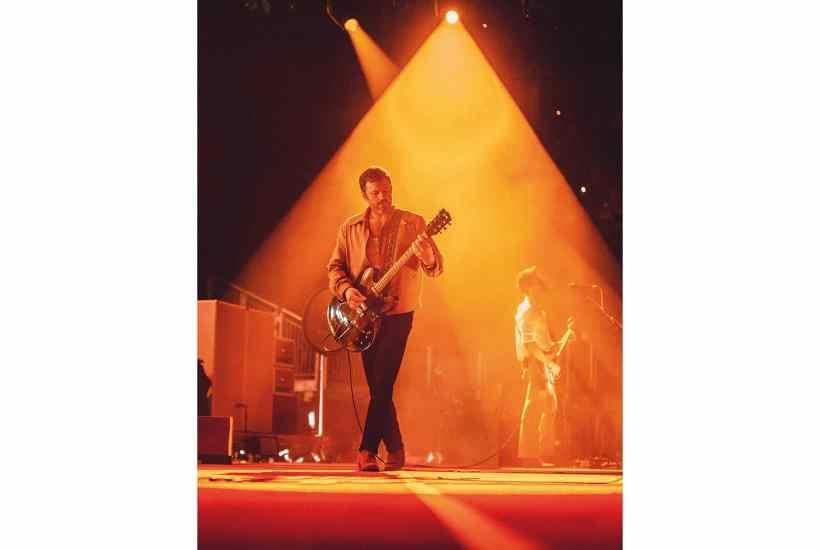
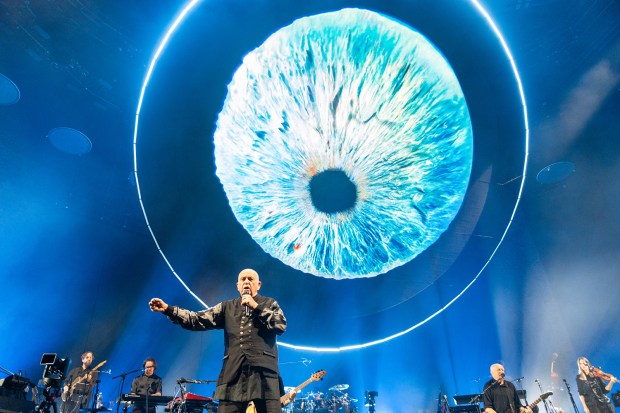
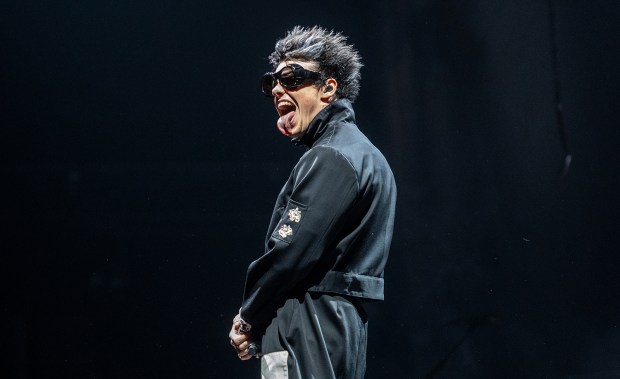
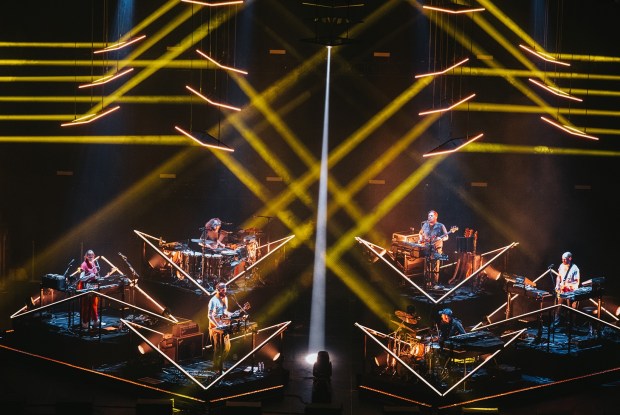
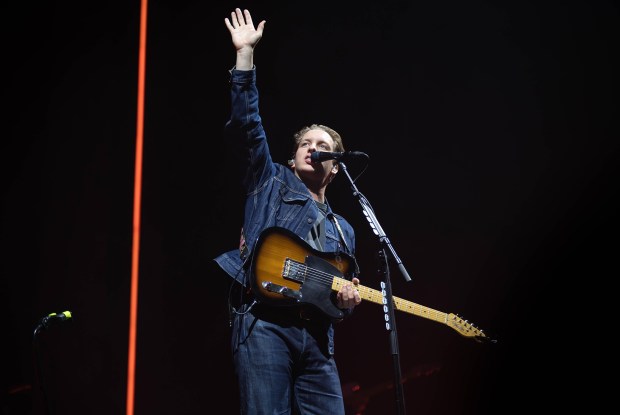
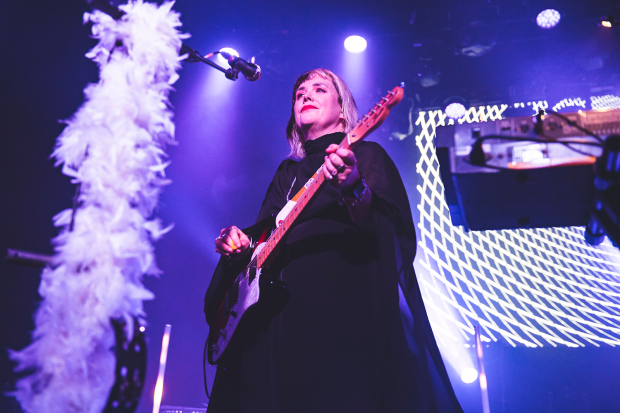
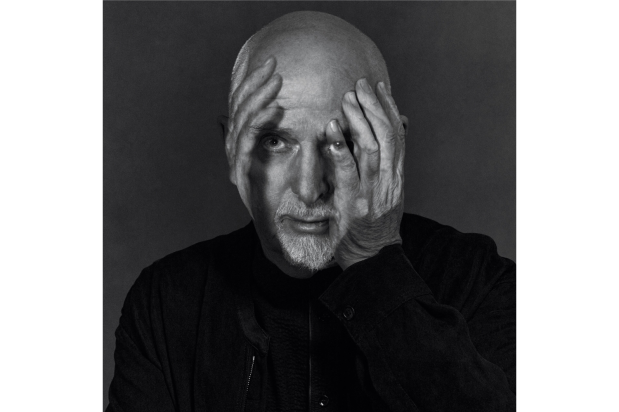






Comments
Don't miss out
Join the conversation with other Spectator Australia readers. Subscribe to leave a comment.
SUBSCRIBEAlready a subscriber? Log in